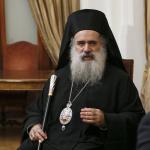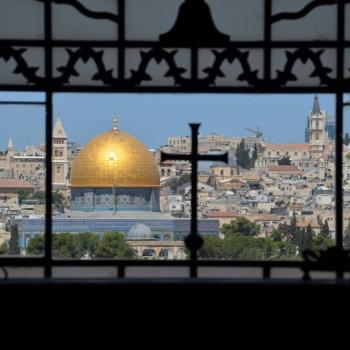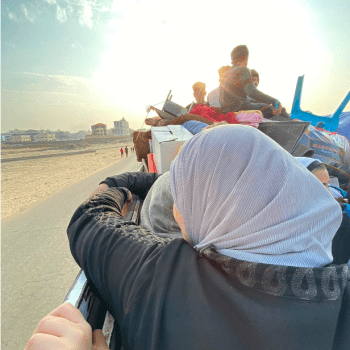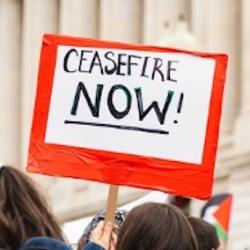For anyone who’s not aware, the Muslim holy month of Ramadan began around the world a few days ago. As a Christian married to a Muslim, I’ve had the privilege of experiencing over thirty Ramadans firsthand. In the next few weeks, I’d like to share with you some of my experiences, and some revelations Ramadan has given me – both about Islam and about Christianity.
I’ll also share with you some thoughts from friends who have participated in Ramadan with us.
Our city of Rockford, Illinois is diverse, with a fairly large Muslim population (many of them immigrants). We have a great interfaith community there (or we did – I moved away two years ago, and the pandemic has of course ruined many good programs). The local mosque has hosted Ramadan meals for many years, during which lots of Rockfordians got to meet their Muslim neighbors and learn a little about their faith.
We also had a women’s interfaith group that met every month for a potluck, and hosted a wonderful meal during Ramadan.
In the coming weeks, some of the participants in these activities – Christians, Muslims, and others – will share their Ramadan experiences here. (If you are interested in learning about Islam, or if you question “business as usual” in Christianity – subscribe to my newsletter, and we can journey together!)
Through these little glimpses into the Muslim world, I hope you’ll see a bit of what we all have in common, and what is unique about Islam. I believe that Christians can learn a lot from our Muslim neighbors.
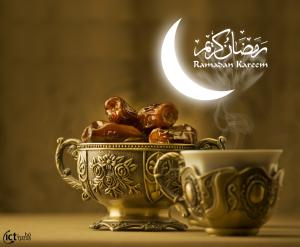
What is Ramadan?
Ramadan is a month during which, basically, Muslims fast from sunrise (today, in Jacksonville NC, that’s 5:37 am) to sunset (7:39 pm).
They refrain not just from food, but also from water, coffee, smoking, cussing, and physical intimacy. It’s a time for spiritual reflection, self-discipline, empathy for the less fortunate, and often intense times of prayer and worship.
Fasting for many goes like this: maybe an hour before sunrise, it’s time to wake up for suhoor – the last meal for many hours. Some Muslims go back to sleep after suhoor, some don’t (my husband has his full day’s supply of coffee during this meal – three cups – so sleep is not really an option).
Then it’s time to begin the regular daily routine (obviously sans food). In the Muslim world, work and school hours are sometimes shortened during Ramadan to make things a little easier. Here in the West, Muslims usually put in their full day’s work (some will catch a catnap during their lunch hour and/or after work).
Then at sunset, it’s time for iftar, which is often a big meal starting with dates and water, then soup, then all kinds of goodies, and followed by special Ramadan sweets and tea.
After the meal some folks, not surprisingly, go into a food coma. Others head to the local mosque to listen to Qur’an reading (more on that another day). Eventually it’s bedtime, but soon the alarm rings again and it’s time to repeat the process.
Ramadan is a long, arduous month for many Muslims – the loss of consecutive hours of sleep is exhausting; the exertion of working without refueling the body is taxing. Yet they look forward to the challenge all year and embrace it when it arrives.
And this concludes your brief introduction to the month-long phenomenon that is Ramadan.
I hope to present a short post each day for the rest of Ramadan. Can you spare a minute a day to learn about your Muslim neighbors? I hope so!
(If you are energized by widening your perspective on faith, sign up for my free newsletter here!)
(If you would like to comment, please pop over to my Facebook page. All of my posts are there and open to constructive comment! I welcome your thoughts. And don’t forget to subscribe to my newsletter!)
- RELATED READING:
- Interfaith harmony: the kinship of Christians and Muslims
- Muslims and Christians: we are family
- The inclusivity of heaven – according to Jesus
- Straight talk about abortion and a woman’s right to choose
FEATURED IMAGE: “ictQATAR Ramadan Greetings” by ictQATAR is marked with CC BY-NC 2.0.


